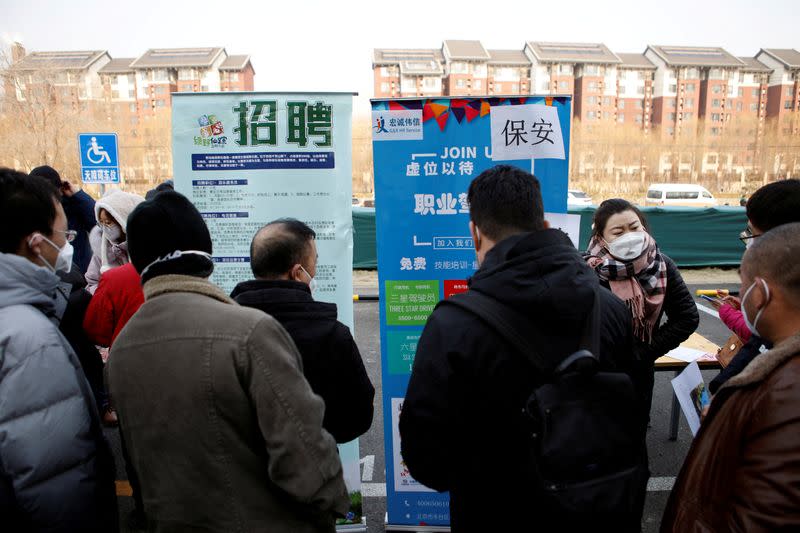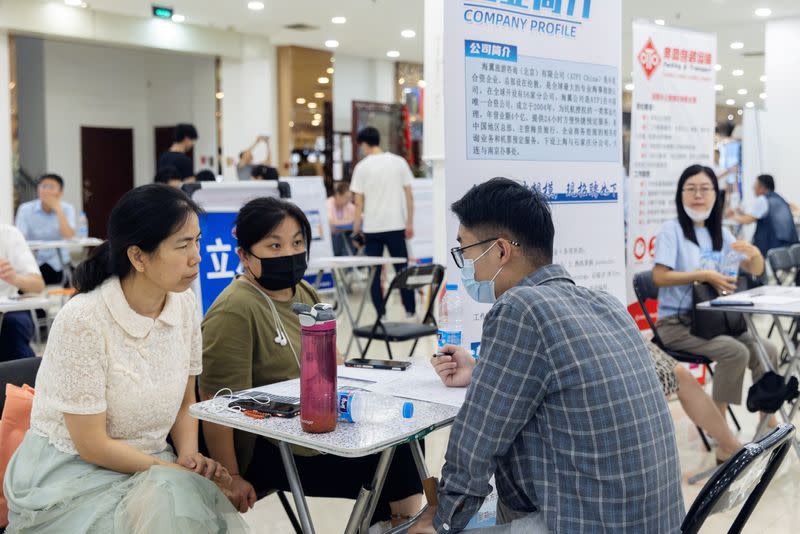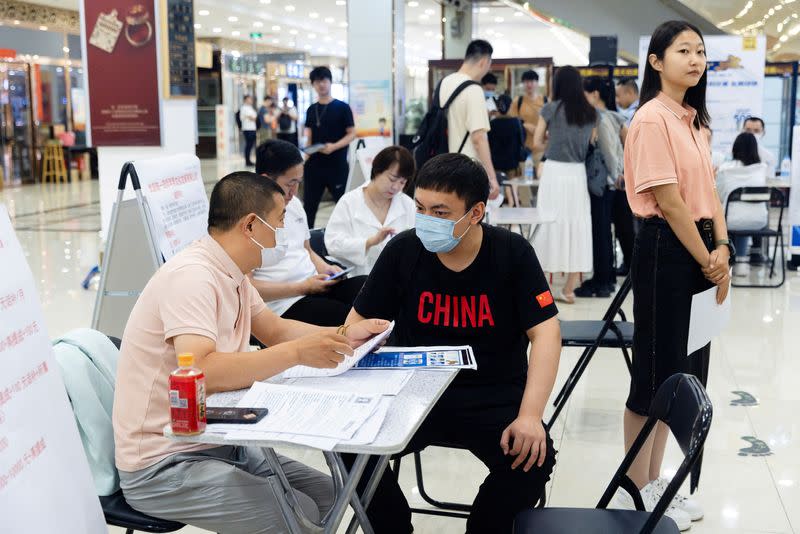By Ellen Zhang and Marius Zaharia
BEIJING/HONG KONG (Reuters) - Having failed to find his dream job at a Chinese internet company upon graduation, Peter Liu settled for a role in a state library where there is so little need for his participation that he spends his time studying for a change in his career path.
"It's really hard to get work at big companies," said the 24-year-old who majored in TV production at a Beijing university before moving back home in the central Henan province.
Liu got the librarian job after a government-led campaign to secure temporary work for graduates, which analysts describe as a short-term solution to preserve social stability in a slowing economy with little on offer for young Chinese.
Such "welfare jobs," as they are known in China, include roles as receptionists, office administrators, security guards and community workers. Various government institutions offer such jobs every year, but they had usually drawn applications from disadvantaged groups, such as elderly or disabled people.
This year, amid a deepening youth joblessness crisis in the world's second-largest economy, even remote rural positions have seen intense competition from young Chinese with diplomas from top universities, graduates and economists say.
The government sees employment as key to pacifying China's most pessimistic generation in decades, while graduates gaining even limited work experience can also benefit their future employers if the economy recovers, analysts say.
The one-to-three year contracts pay roughly the minimum wage in the region, typically between 2,000 and 3,000 yuan ($275-$412) per month, sometimes including free meals - much less than their average expectation for a first job salary of 8,033 yuan, according to a survey by Chinese recruitment firm Liepin.
A separate programme aiming for 1 million internships this year has courted state-owned and private firms for participation.
The Ministry of Human Resources and Social Security, which did not reply to a request for comment on the government programmes or the job market, told state media last week youth employment was improving.
China has in the past year eased some regulatory burdens on tech, property and finance firms - traditionally large employers of new talent. But state media editorials have also encouraged young graduates to take lower skilled jobs.
On Wednesday, the statistics bureau is expected to omit for the fourth consecutive month the release of youth unemployment data, suspended in July after reaching a record 21.3% in June, just as 11.6 million fresh graduates were entering the job market.




